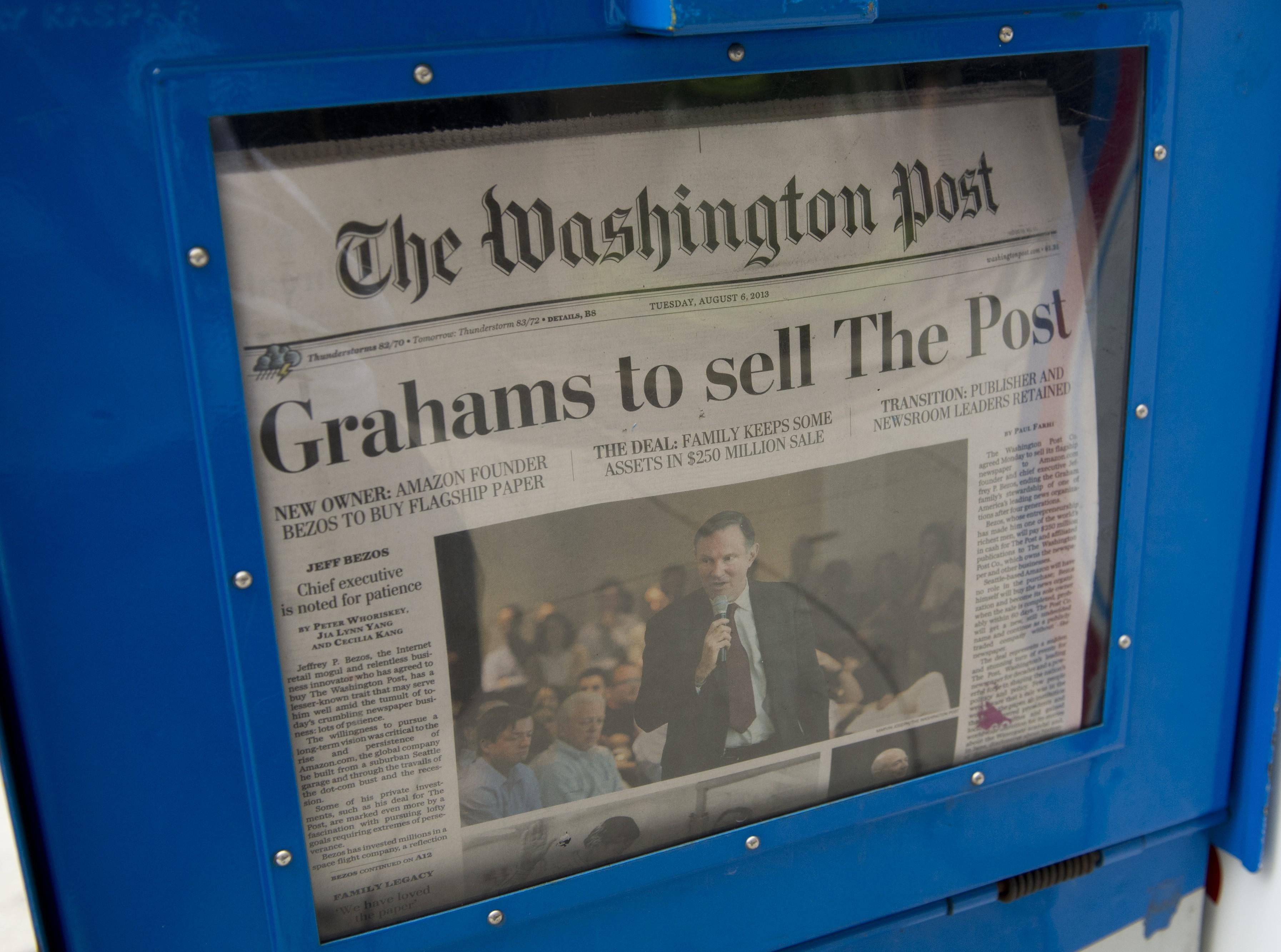Todd Gitlin, writing about the sale of the Washington Post, says, “Having created ways to extend markets with electronic infrastructure, men like Bezos have brilliantly (and ruthlessly) monetized what they devised” and goes on to outline some various implications for the future of media.
What strikes me is that this isn’t really true. Amazon has razor-thin margins on its good days, and negative net income on its bad ones. It’s actually newspaper moguls who were brilliant at monetization. A lot of people a generation or two older than I am remember a time when the rise of television had driven a lot of newspapers out of business, leaving most cities with one or two newspapers left standing. And yet there was still lots of advertising that couldn’t be done effectively or efficiently on television (classifieds, movie showtimes, event listings, short-term sales), so newspapers were able to derive crazy-high margins on their core businesses. Tim Noah wrote a hilarious piece back in 1984 about the Washington Post’s days as a fat and happy local monopoly that’s eye-opening to read in retrospect. Now Noah says in retrospect that his piece slighted the extent to which the Post was using its revenue stream to simply produce great journalism. And it’s absolutely true—the Post and other big-city newspapers did plenty of great journalism. But the striking thing about the piece is how much money the paper had left to spend over and above the cost of producing great journalism.
Imagine instead that the newspapers of the 1970s and 1980s had more of the spirit of Amazon. What would they have done? Well, they would have competed. The Post could have taken its strengths in national politics and international reporting and its considerable newspaper expertise to open a paper in Chicago. The Chicago paper could run at low-to-zero margins and undercut the Tribune in ad rates with the (high) startup infrastructure costs borne by the enormous profits of the main paper in D.C. America could have had a crazy 15-year national newspaper war as every strong paper tried to expand into other papers’ home markets, with tons of growth and experimentation and also tons of failures as weaker papers went bust. In the end maybe you’d have had four or five big savvy enterprises left standing. Tons of investors would have lost their shirts. But I think the large, national-scale, highly competitive newsgathering and news-disseminating organizations that resulted would have been in much better shape to deal with the competitive marketplace of the Internet.
Instead, though, newspaper owners brilliantly and ruthlessly monetized what they devised. They paid really big dividends. Some of them—like the Boston Globe people who sold their paper to the New York Times Co. for a billion dollars—sold at the top and reaped huge capital gains. Some of them went public and used the capital raised from the IPO to buy education companies and get into hospices and industrial boilers. Amazon, by contrast, hasn’t managed to monetize much of anything. Instead it’s grown and expanded, searching relentlessly for new markets to conquer.
